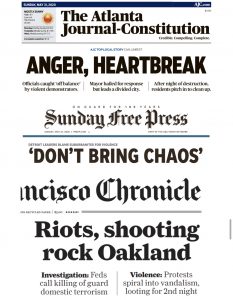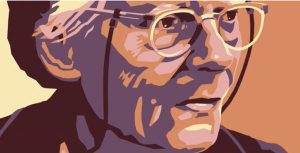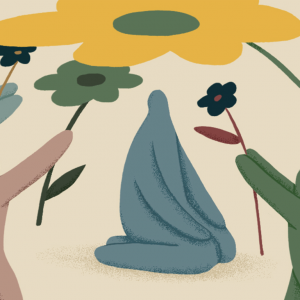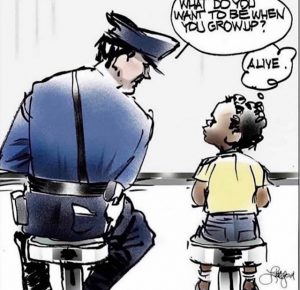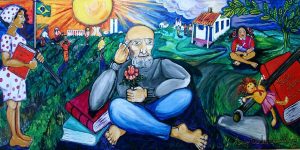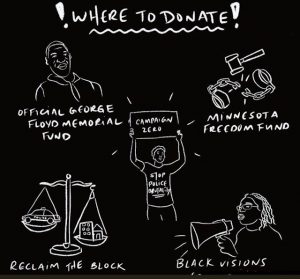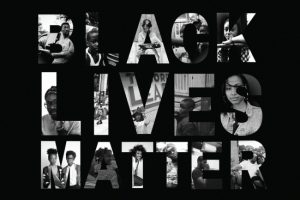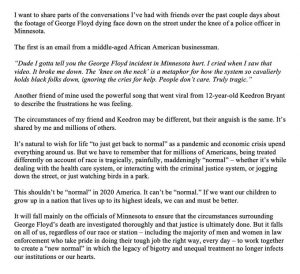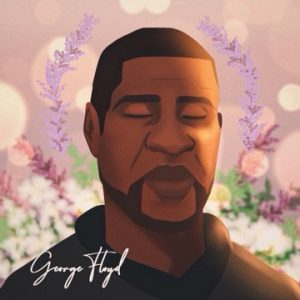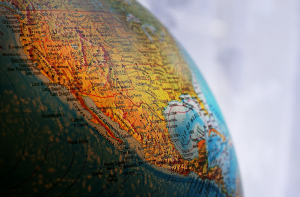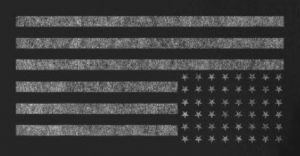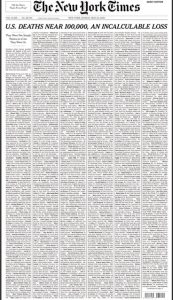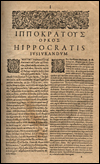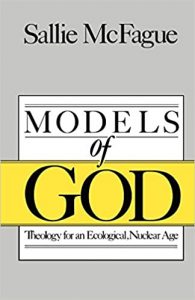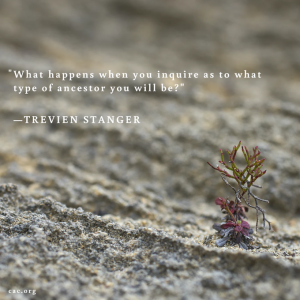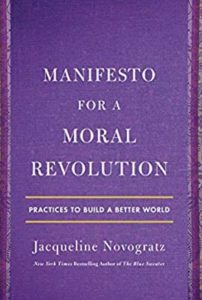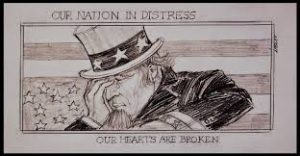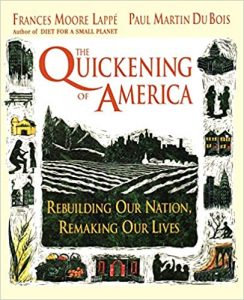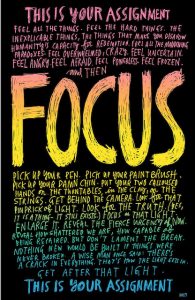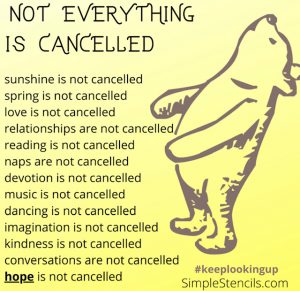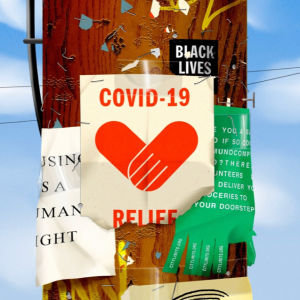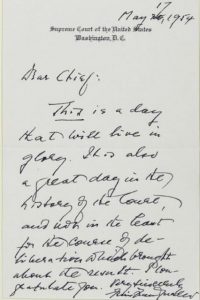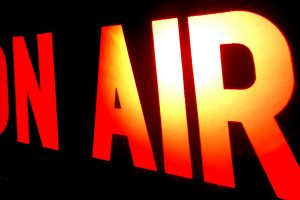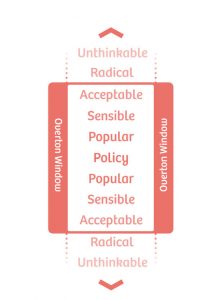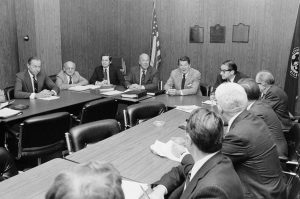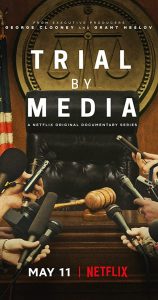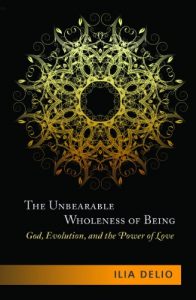If not now, when?
May 31, 2020‘Apocalypse (ἀποκάλυψις) is a Greek word meaning “revelation”, an unveiling or unfolding of things not previously known and which could not be known apart from the unveiling.’
‘Our nerves, our home, our country crave peace’…and leaders. As the helpers and heroes sustain us, I pray for shift. -dayle
Now, I have no choice but to see with your eyes,
so I am not alone,
so you are not alone.
-Yannis Ritsos
Mark Nepo:
There is a story of Gandhi that reveals how profound and daring his sense of compassion was. It occurred during one of his famous hunger strikes. A man whose daughter was killed came in anguish, saying to Gandhi that he would stop fighting if the great soul would eat. But Ghandi knew the healing was deeper than just stopping the violence, and so he told the man he would eat only when the tormented father embraced the man who killed his daughter.
It is said that the man collapsed in tears, but did as Gandhi asked, and the larger conflict ended. This is an enormous thing to ask of someone in grief, of someone who has been violated. But beyond the vast courage needed to incorporate this kind of love into our daily lives, Gandhi’s request reveals the irrefutable wisdom that only when the broken are headed, no matter what they have done, will we as a people heal.
-The Book of Awakening, p. 179.
Image credit: Dorothy Day, by Julie Lonneman.
’So what makes a good community? Our very survival as a faith tradition, not to mention a species, might just depend upon this.’
Common Ground & Purpose
People want something more from church than membership. They long for a spiritual home that connects with their whole life, not just somewhere to go on Sunday morning. Church is meant to be a place that nurtures and supports individuals along their full journey toward the ultimate goal: a lived experience of the communion of saints, a shared life together as one family, the Reign of God “on earth as it is in heaven” (Matthew 6:10).
Too often, the formal church has been unable to create any authentic practical community, especially over the last half-century. In response, we see the emergence of new faith communities seeking to return to this foundational definition of church. These may not look like our versions of traditional “church,” but they often exemplify the kinds of actual community that Jesus, Paul, and early Christians envisioned. People are gathering digitally and in person today through neighborhood associations, study groups, community gardens, social services, and volunteer groups. They’re seeking creative ways of coming together, nurturing connection, of healing and whole-making. The “invisible” church might be doing this just as much, if not more, than the visible one. The Holy Spirit is humble and seems to work best anonymously. I suspect that is why the Holy Spirit is often pictured as a simple bird or blowing wind that is here one minute and seemingly gone and then nowhere (John 3:8).
It’s all too easy to project unrealistic expectations on any community. No group can meet all our needs as individuals for emotional, mental, and physical well-being. The human psyche needs space and healthy boundaries and not co-dependent groupings. I certainly learned this lesson myself through my participation in the New Jerusalem Community in Cincinnati in the 1970s and 80s, and even earlier as a Franciscan brother. Almost any community can serve as an excellent school for growth, character, and conversion, even though it may not be a permanent “home” for many reasons.
Remember, the isolated individual is fragile and largely helpless to evoke long-term change or renewal. By ourselves, we can accomplish very little. We must find common ground and common purpose to move forward. Fr. Richard Rohr
‘We wake to our cities in pain but also in longing. Full of far more people ready to build & create than to tear apart. On Lake St in Minn yesterday I saw what the drones & news cameras do not convey – an alternative landscape of care rising up around devastation.’ -Krista Tippet, On Being
The NASA/SpaceX launch and ISS dock has brought needed respite, inspiration, and hope. Look what we can accomplish as a species when we work together. -dayle
Let us surrender to Divine Grace.
-Rev. Dr. David Ault
We are living liminal space.
May 30, 2020In the universe, there are things that are known, and things that are unknown, and in between them, there are doors.
-William Blake
‘In liminal space, we must leave business as usual, which often looks like a sleepwalking trance through daily life if we are not conscious, and voluntarily enter a world where the rules and expectations are quite different. Some call it voluntary displacement. When we wake up in this way and find ourselves on the threshold of something new, we are shocked into realizing that our usual trance state is not the only option, and there might just be something more.
It would be difficult to exist in this time of global crisis and not feel caught between at least two worlds—the one we knew and the one to come. Our consciousness and that of future generations has been changed. We cannot put the genie back in the bottle.’
-Richard Rohr, Oneing
Accountability. And systemic Reformation.
May 29, 2020Cartoon: Edward Littleford
“God is looking down on humans right now thinking, “Damn. Maybe I should try dinosaurs again?”
-Conan O’Brien
[John Oliver discusses the systems in place to investigate and hold police officers accountable for misconduct.]
Richard Rohr, Center for Action & Contemplation
A powerful example of five conversions at work is The Poor People’s Campaign, which was revived in 2018 by the Rev. Dr. William Barber II and the Rev. Dr. Liz Theoharis. [1] In these paragraphs, Theoharis offers a scriptural exploration of what the Kingdom of God implies for the poor and marginalized—a movement of solidarity.
The New Testament . . . portrays the survival struggles of the marginalized, the solidarity and mutuality among different communities, and the critique of a social, political, and economic system that oppresses the vast majority of people. . . . Jesus’s teachings and actions around poverty, wealth, and power create a picture of him as a leader of a social, political, economic, and spiritual movement calling for a world without poverty, want, or oppression . . . what he named the Kingdom or Empire of God. . . .
Basilea.
The Greek word for “Kingdom of God” or “Empire of God,” basilea, has much to do with the economic order that Jesus advocated. Few would disagree that the Kingdom of God is central to the teachings of Jesus and the New Testament. However, many understand this kingdom as otherworldly and immaterial. But if we look at both the prevalence of the concept and the specific references to it in the New Testament, we can see that God’s kingdom is a real, material order, with a moral agenda different from and opposed to the reigning order of the day. The basilea is particularly present in the parables that describe how the reign of God functions differently from the Roman Empire: in God’s kingdom, there is no poverty or fear, and mutuality exists among all.
Throughout the New Testament, Jesus’s parables and stories paint a picture of a reign in which the poor and marginalized are lifted up and their needs are met, rather than being despised or ignored by those in control. . . . to model a community of mutuality and solidarity. . . .
Centuries of [New Testament] interpretation have attempted to spiritualize or minimize this good news for the poor, hiding the reality that the Bible is a book by, about, and for poor and marginalized people. It not only says that God blesses and loves the poor, but also that the poor are God’s agents and leaders in rejecting and dismantling kingdoms built upon oppression and inequality.
[1] The Poor People’s Campaign was first established by the Rev. Dr. Martin Luther King, Jr. and others in 1968 to encourage leaders and citizens across the nation to stand in solidarity with the poor. https://www.poorpeoplescampaign.org/about/
Image Credit: Paulo Freire (detail), Centro de Formação, Tecnologia e Pesquisa Educacional (CEFORTEPE), SME-Campinas, Campinas, Brazil.
‘Promising us a roof and then breaking that promise might be worse than no roof at all.’
-Seth Godin
Senator Bernie Sanders:
“What gives me hope right now are the new generations of young people who dream big and do not want to settle for the status quo.”
President Barack Obama:
George Floyd, 46
George Floyd moved to Minnesota “to be his best self,” as one friend put it.
Citizens of a Failed State
May 28, 2020Remembering What America Might Have Been
By Jeremy Gerard
‘What has died since the coronavirus began cutting its global swath is the notion — central to our collective identity — of American exceptionalism. As George Packer writes in The Atlantic, “Every morning in the endless month of March, Americans woke up to find themselves citizens of a failed state.” The epidemic, he said, has reduced us to “a beggar nation in utter chaos.”
This phenomenon is more than the natural extension of our earlier sense that the federal government no longer functions on behalf of us all. The virus as metaphor couldn’t be more apt (sorry Susa Sontag), for it undermined the dearly held notion that the United States occupies a special, deity-endowed place in the world as a beacon to all others.
That idea of specialness, historically appropriated by religious, not political, entities, was first applied to the United States with intentional irony by Alexis de Tocqueville in the 19th century. (It was inevitably tied, as I learned in grade school, to the concept of Manifest Destiny, which to a sixth-grader explained God’s plan that white Europeans “discover” a “New World,” usurp the land, perpetrate genocide on its inhabitants, enslave peoples from an entirely different continent and lay waste its natural riches to provide goods and commodities for the Motherland.)
Credit the internet with leading us to finally understand how fragile the concept of citizenship really is, and how even leaders with good intentions are threatened by a consumerist conspiracy to turn the world into one big Amazon shopping basket. We have borne out what so impressed Tocqueville more than a century ago: Not American idealism; on the contrary, what struck him was our obsession with accumulation of wealth as the sole factor giving meaning to life.
[Jeremy Gerard is a widely published critic and reporter on culture, politics and human-rights issues. He has been a staff writer at Bloomberg News, New York magazine and the New York Times.]
The light on the hill has faded. We were never Camelot. And there is no air.
Memorial Day.
May 25, 2020‘When fascism comes to America, it will be wrapped in the flag and carrying the cross.’
-Sinclair Lewis
Memorial Day Weekend 2020
May 24, 2020The stark front page of today’s New York Times, plus three inside pages, consist of two-line obituaries for 1,000 of the nearly 100,000 Americans who have died of coronavirus — 1% of the toll.
[Note: if the NYTimes had published all the names, not just the 1% of the 100,000, they would have had to punish 100 separate newspaper editions.]
A huge team at The Times drew the accounts “from hundreds of obituaries, news articles and paid death notices that have appeared in newspapers and digital media over the past few months.”
Marc Lacey, national editor, said: “I wanted something that people would look back on in 100 years to understand the toll of what we’re living through.”
Cornelia Ann Hunt, 87, Virginia Beach, her last words were “thank you.”
May 23, 2020
The Hippocratic Oath (Ορκος) is perhaps the most widely known of Greek medical texts. It requires a new physician to swear upon a number of healing gods that he will uphold a number of professional ethical standards. It also strongly binds the student to his teacher and the greater community of physicians with responsibilities similar to that of a family member. In fact, the creation of the Oath may have marked the early stages of medical training to those outside the first families of Hippocratic medicine, the Asclepiads of Kos, by requiring strict loyalty.
Over the centuries, it has been rewritten often in order to suit the values of different cultures influenced by Greek medicine. Contrary to popular belief, the Hippocratic Oath is not required by most modern medical schools, although some have adopted modern versions that suit many in the profession in the 21st century. It also does not explicitly contain the phrase, “First, do no harm,” which is commonly attributed to it.
Hippocratic Oath
‘I swear by Apollo the physician, and Asclepius, and Hygieia and Panacea and all the gods and goddesses as my witnesses, that, according to my ability and judgement, I will keep this Oath and this contract:
To hold him who taught me this art equally dear to me as my parents, to be a partner in life with him, and to fulfill his needs when required; to look upon his offspring as equals to my own siblings, and to teach them this art, if they shall wish to learn it, without fee or contract; and that by the set rules, lectures, and every other mode of instruction, I will impart a knowledge of the art to my own sons, and those of my teachers, and to students bound by this contract and having sworn this Oath to the law of medicine, but to no others.
I will use those dietary regimens which will benefit my patients according to my greatest ability and judgement, and I will do no harm or injustice to them.
I will not give a lethal drug to anyone if I am asked, nor will I advise such a plan; and similarly I will not give a woman a pessary to cause an abortion.
In purity and according to divine law will I carry out my life and my art.
I will not use the knife, even upon those suffering from stones, but I will leave this to those who are trained in this craft.
Into whatever homes I go, I will enter them for the benefit of the sick, avoiding any voluntary act of impropriety or corruption, including the seduction of women or men, whether they are free men or slaves.
Whatever I see or hear in the lives of my patients, whether in connection with my professional practice or not, which ought not to be spoken of outside, I will keep secret, as considering all such things to be private.
So long as I maintain this Oath faithfully and without corruption, may it be granted to me to partake of life fully and the practice of my art, gaining the respect of all men for all time. However, should I transgress this Oath and violate it, may the opposite be my fate.’
Translated by Michael North, National Library of Medicine, 2002.
What Happens When You Plant a Tree?
For all its presumed innocence, this way of life lived by well-off North Americans is both unjust to those who cannot attain this lifestyle and destructive of the very planet that supports us all.
—Sallie McFague
Sallie McFague was an American feminist Christian theologian, best known for her analysis of how metaphor lies at the heart of how we may speak about God. She applied this approach in particular to ecological issues, writing extensively on care for the earth as if it were God’s “body.”
‘In this award-winning text, theologian Sallie McFague challenges Christians’ usual speech about God as a kind of monarch. She probes instead three other possible metaphors for God as mother, lover, and friend.’
Center for Action & Contemplation
While we may continue to practice physical distancing from other humans, most of us can still safely spend time in nature. The Journal of Health Psychology confirms what Franciscans and mystics have long known: interacting with nature is a great stress reliever. Just thirty minutes of gardening lowers the cortisol released during stress-induced fight-or-flight responses. Today’s practice, written by poet, writer, and educator Trevien Stanger for the book Order of the Sacred Earth, invites us to make a very specific contemplative contribution by planting trees.
Ethnobotanist, author, and Potawatami elder Robin Kimmerer asserts, “We need acts of restoration, not only for polluted waters and degraded lands, but also for our relationship to the world. We need to restore honor to the way we live, so that when we walk through the world we don’t have to avert our eyes with shame, so that we can hold our heads high and receive the respectful acknowledgment of the rest of [the] earth’s beings.” [1] . . .
I contend that every individual can participate in [the] Great Turning, and that one of the great challenges of our time is for each of us to figure out how and where we plug into this psycho-spiritual current. . . . I, for one, plant trees. . . . In my more recent work as an environmental studies professor at a community college in Vermont, I’ve had a hand in planting just shy of 100,000 trees over the past 12 years. . . .
What happens when you plant a tree? What happens when you wield a shovel in one hand (a human artifact) and a tree (a provisional mystery) in the other? What happens when you dig a hole (a Kali-like destruction) and plant a tree within it (an act of creativity)? What happens when you learn about your local ecology not just as an observer, but also as a participant? What happens when you embrace the wildness of a tree-being and integrate it into the semi-wild streets and streams of your local community? What happens when you crack open your isolated sense of self and plant within your heart this symbol of our ever-branching inter-being? What happens when you consider your actions in terms of your ecological and cultural legacy? What happens when you move beyond your concerns of today and inquire as to what type of ancestor you will be? Nelson Henderson posits that “. . . one true meaning of life is to plant trees under whose shade you do not expect to sit.” [2] Under whose shade do you sit beneath today? Whose shade shall you help gift for tomorrow?
[1] Robin Wall Kimmerer, Braiding Sweetgrass: Indigenous Wisdom, Scientific Knowledge, and the Teachings of Plants (Milkweed Editions: 2013), 195.
[2] Wes Henderson shared his father’s advice in Under Whose Shade: A Story of a Pioneer in the Swan River Valley of Manitoba (W. Henderson & Associates: 1986, ©1982).
Trevien Stanger, “Tree Planter,” Order of the Sacred Earth: An Intergenerational Vision of Love and Action, Matthew Fox, Skylar Wilson, and Jennifer Listug (Monkfish Book Publishing Company: 2018), 184-186.
Image credit: Legend of St. Francis: 15. Sermon to the Birds (fresco detail), artist unknown, formerly attributed to Giotto di Bondone, c. 1297–1299, Upper Basilica of San Francesco d′Assisi, Assisi, Italy.
Remember.
May 22, 2020❥
Four things I know are true but have to remember to remember:
- santosha (the joy is there, I just have to scan for the good)
- impermanence (everything I love will someday disappear)
- karma (what I give is what I get)
- dukkah (suffering is wanting things to be different than they are)
-Abby Falik, Global Citizen Academy
https://www.globalcitizenyear.org
Thoughts on Democracy & Gaia
Gaia
From Father Richard Rohr, Barbara Holmes, and Bill McKibbon:
Goodness is a first principle of the universe. God declares it on the first page of the story of creation. —Barbara Holmes
Creation is the first Bible, as I (and others) like to say [1], and it existed for 13.7 billion years before the second Bible was written. Natural things like animals, plants, rocks, and clouds give glory to God just by being themselves, just what God created them to be. It is only we humans who have been given the free will to choose not to be what God created us to be. Surprisingly, the environmentalist and author Bill McKibben finds hope in this unique freedom. He writes:
The most curious of all . . . lives are the human ones, because we can destroy, but also because we can decide not to destroy. The turtle does what she does, and magnificently. She can’t not do it, though, any more than the beaver can decide to take a break from building dams or the bee from making honey. But if the bird’s special gift is flight, ours is the possibility of restraint.
We’re the only creature who can decide not to do something we’re capable of doing. That’s our superpower, even if we exercise it too rarely.
So, yes, we can wreck the Earth as we’ve known it, killing vast numbers of ourselves and wiping out entire swaths of other life—in fact . . . we’re doing that right now. But we can also not do that. . . .
We have the tools (nonviolence chief among them) to allow us to stand up to the powerful and the reckless, and we have the fundamental idea of human solidarity that we could take as our guide. . . .
While the lives of our elders, our vulnerable, and essential workers are at stake during the COVID-19 pandemic, tens of millions of us across the globe have been restraining ourselves at home, choosing not to do many things for many weeks in order to protect those we love (and those others love as well). Surely the earth is breathing a sigh of relief for our reduction in pollution and fossil fuel use. This “Great Pause,” as some are calling it, gives me hope that we will soon find it within ourselves to protect our shared home, not only for our own sake, but for our neighbors across the globe, and future generations.
Democracy
How is a huge part of the world organised under a system that has different meanings country-to-country, and could even mean something different to you, and the person standing behind you in the line to vote?
How do we know democracy is broken if we don’t know what it is?
by Patrick Chalmers.
“To my mind, there seems no better starting point for understanding politics than to grapple with the word “democracy”. What does it mean and how should it work?
The word is easy enough to define. It comes from the Greek for people (demos) and power (kratos), translating as people power, or government by the people. Most of us know democracy as something like that. But things quickly get more complicated when we ask what exactly that means in everyday life.
‘…there’s ubuntu, Watch South African Anglican cleric and human rights activist Desmond Mpilo Tutu describe ubuntu in this video clip.the Nguni language word for a humanist philosophy and way of living from southern Africa. It’s most often translated as “I am, because you are”, a profoundly political concept which evokes the connectedness that exists, or should exist, between all people and the planet – a manifesto for inclusive government.’
The distorting – if not corrupting – influence of money helps to explain why elected representatives rarely reflect the societies they are meant to represent but rather their richer members. Consider the representation of women in government. Though their share of seats in legislatures worldwide is growing, they still represent fewer than a quarter of deputies. The same goes for minorities – whatever they may be, wherever they may be. So while, for example, western countries are becoming more ethnically, racially and religiously diverse, their legislators generally haven’t kept pace with these changes. If the current US presidential race is anything to go by, the face of democracy is still pale, male and stale. In parts of the world where people of colour are the majority, male and stale usually covers it.”
Rilke:
As the arrow endures the bowstring’s tension so that, released, it travels farther. For there is nowhere to remain.
Alexandra Stoddard:
Concentrate on seeing all the beauty your soul can absorb but turn away from what is ugly and vile and degrading. The higher your sights, the better your spirits. Everything we do requires us to reveal our inner longings. Identify them clearly and make productive use of them.
Thomas Merton:
There is nothing more tragic in the modern world than the misuse of power and action to which men are driven by their own Faustian misunderstandings and misapprehensions. We have more power at our disposal today that we have ever had, and yet we are the more alienated and estranged from the inner ground of meaning and love than we have ever been. -Contemplation in a World of Action, 1965
A Democratic Pledge
I would like to
- become more selective in what I watch and read
- become more critically aware of the messages I receive
- find new sources information about the things I care about most
- participate in local media
- create interactions in my community
Living Democracy is emerging within the human services, focusing not solely on individual self-reliance but also on the capacities of people to work together for mutual healing and problem solving. Society’s obligation to help support citizens with specific needs does not have to mean top-down governmental control; self-help and society’s help are mutually enhancing and mutually beneficial.
Listen.
Jacqueline Novogratz
Towards a Moral Revolution
Moral reckonings are being driven to the surface of our life together: What are politics for? What is an economy for? Jacqueline Novogratz says the simplistic ways we take up such questions — if we take them up at all — is inadequate. Novogratz is an innovator in creative, human-centered capitalism. She has described her recent book, Manifesto for a Moral Revolution, as a love letter to the next generation.
‘I think, in this moment of such peril & possibility, we really could build a world like the world has never seen before. If there was ever a decade to do it, it’s this decade. I want future generations to say, “Look how hard they tried,” not “Look at how blind they were.”’
The unemployed are tasked planting trees. ?
Pakistan Is Giving Tree-Planting Jobs to Workers Unemployed Due to COVID-19
The work is part of an ambitious project in Pakistan to plant 10 billion new trees.
by, Brandon Wiggins
Pakistan is helping daily workers who have been laid off as a result of COVID-19 by giving them jobs planting trees, according to the Thomson Reuters Foundation (TRF).
The initiative is part of Pakistan’s 10 Billion Tree Tsunami Programme, an ambitious forest restoration project, and provides a template for the type of “green recovery” that countries can embark upon in the aftermath of the COVID-19 pandemic.
“Due to coronavirus, all the cities have shut down and there is no work. Most of us daily wagers couldn’t earn a living,” a construction worker named Abdul Rahman told TRF.
While Rahman’s wages of 500 rupees ($3) per day are around half of what he could have made “on a good day” as a construction worker, he said it was enough to get by.
“All of us now have a way of earning daily wages again to feed our families,” he told TRF.
NYTimes
Prayers.
‘A pakistan International Airlines plane with at least 91 people aboard crashed in a residential area near the airport in Karachi, officials said.’
Get after that light.
May 21, 2020@courtwrites
‘I believe in all that has never yet been spoken.’ -Rilke
The zone is flooded.
May 17, 2020The medieval English anchoress Julian of Norwich bequeathed us a radically optimistic theology. She had no problem admitting that human beings have a tendency to go astray. We rupture relationships, dishonor the Divine, make unfortunate choices, and try to hide our faults. And yet, Julian insists, “All will be well and all will be well and every kind of thing shall be well.”
She squarely faces the inevitability that we will miss the mark [what Julian calls “sin”] and that there is wickedness in this world. Even so, she is convinced that the nature of the Divine is loving-kindness, and she wants us to absorb this into every fiber of our being. -Fr. Richard Rohr
‘I urge you to avoid those who cause dissension and offenses contrary to what you have learned. Avoid them.’
[Romans 16:17]
Thomas Merton:
I am certainly no judge of television, since I have never watch it. All I know is that there is a sufficiently general agreement, among men who judgment I respect, that commercial television is degraded, meretricious, and absurd. Certainly, it would seem that TV could become a kind of unnatural surrogate for contemplation: a completely inter subjection to vulgar images, a descent to a sub natural passivity rather than an ascent to a supremely active passivity in understanding and love. It would seem that television should be used with extreme care and discrimination by anyone who might hope to take interior life seriously.
-New Seeds of Contemplation, 1949
His thoughts on the Internet, we can only imagine, would be the same. -dayle
VOX/By
This is a new form of propaganda tailored to the digital age and it works not by creating a consensus around any particular narrative but by muddying the waters so that consensus isn’t possible. And it’s all the more difficult because even the most scrupulous, well-intentioned coverage can easily fall into the trap of flooding the zone.
Zone-flooders.
The press, admittedly, has a difficult job to do, especially in this information landscape. But that’s the thing: The landscape has changed. The digital media ecosystem overwhelms people with information. Some of that information is true, some of it is false, and much of it is deliberately diversionary. Trying to cover every crazy story, every batshit claim, is a fool’s errand. The end result of so much noise is what I’ve called “manufactured nihilism,” a situation in which people are so skeptical about the possibility of truth that they give up the search.
The role of “gatekeeping” institutions has also changed significantly. Before the internet and social media, most people got their news from a handful of newspapers and TV networks. These institutions functioned like referees, calling out lies, fact-checking claims, and so on. And they had the ability to control the flow of information and set the terms of the conversation.
Today, gatekeepers still matter in terms of setting a baseline for political knowledge, but there’s much more competition for clicks and audiences, and that alters the incentives for what’s declared newsworthy in the first place. At the same time, traditional media outlets remain committed to a set of norms that are ill adapted to the modern environment.
So now we find ourselves engaged in an endless game of whack-a-mole, debunking and explaining one false claim after another. And false claims, if they’re repeated enough, become more plausible the more often they’re shared, something psychologists have called the “illusory truth” effect.
The prevailing norms of journalism and the political economy of media are driving these dynamics.
We must.
But what about the moral imagination?
Visualizing what’s possible. Deciding to do something about it. Wondering (to ourselves and then to the world, “how can I make this better?”)
Not because it’s our job or because we’ll win a prize. Simply because we can.
We can start where we are and we can make things better.
-Seth Godin
Brown v. Board of Education
Justice Felix Frankfurter congratulates Chief Justice Earl Warren on Brown v. Board of Education, today 1954: “This is a day that will live in glory.”
-Michael Beschloss, historian
@BeschlossDC
Radio Conglomerates…hand outs?
Rolling Stone
Restaurant Chains Took Loans Meant for Small Businesses. Will Radio Conglomerates Do the Same?
Watchdog groups fear that language in a new stimulus bill could allow individual stations owned by large companies to “masquerade” as small businesses — and take all the money
The National Association of Broadcasters, a lobbying group that represents modest radio groups as well as the massive chains — including iHeartMedia (around 850 stations), Townsquare Media (around 320 stations), and Entercom (more than 235 stations) — cheered the Heroes Act. “Hometown broadcasters and community newspapers are providing vital news and information during these unprecedented times to keep families and communities safe, while struggling with record advertising revenue losses,” the NAB wrote in a statement on Tuesday. “Broadcasters look forward to working with all Members of Congress to ensure that such legislative language is swiftly enacted.”
But other organizations said the bill’s language undercuts its original intent: to help small businesses. On Tuesday, Craig Aaron, Co-CEO of the media advocacy group Free Press Action, expressed fear that, “as written, this legislation would benefit the biggest chains at the expense of their smaller competitors and other struggling businesses.”
The American Association of Independent Music, which counts more than 700 independent labels as members, also came out against the bill’s current language on Thursday. “It would be a travesty if these large radio conglomerates were able to get money out of the next tranche of PPP forgivable loans,” says Richard James Burgess, the head of A2IM. The big radio companies “are masquerading as small businesses, but they’re gigantic conglomerates.”
Radio conglomerates claim they need these loans to maintain a local presence. But others argue that these conglomerates have never been less interested in being local than they are now. “These are companies that have gone and gutted their payrolls, dumped local talent, and replaced them with robot DJs,” Aaron says. “We’ve gotten so far from local owners that radio is almost unrecognizable now,” Karen Slade, vice president and general manager of the independently owned KJLH in Los Angeles, told Rolling Stone last year.
To recap: The NAB is asking Congress to give radio conglomerates money, supposedly to support their local programming. At the same time, it’s pushing the FCC to jettison ownership rules, which, many worry, will cement radio’s decades-long turn away from local programming.
That’s why small radio chains should absolutely benefit from the latest edition of the PPP. But they — and other mom-and-pop businesses — may be unable to benefit at all if conglomerates end up with all the money.
How Ideas Conquer the World
Overton Window.
Rutger Bregman
When the market crashed in 2008, it became clear that neoliberalism was not the way forward. But at the time, neither the protesters of Occupy Wall Street nor politicians had realistic alternatives.
Now, over a decade later during the biggest crisis since the Second World War, it’s different.
Economists, philosophers and politicians have been fighting the cynical dogma that most people are selfish for years. They’ve been working on real alternatives.
Now we know: humankind is actually not selfish, but has evolved due to its unparalleled willingness to cooperate. If, going forward, we took that fact seriously, everything could change. Governments could be based on trust. Tax systems could be rooted in solidarity. Social security could be reformed.
We don’t know where this crisis will lead us, writes Rutger Bregman, but this time the groundwork has been laid for a radically different world.
The neoliberal era is ending. What comes next?
On 4 April 2020, the British-based Financial Times published an editorial likely to be quoted by historians for years to come.
The Financial Times is the world’s leading business daily and, let’s be honest, not exactly a progressive publication. It’s read by the richest and most powerful players in global politics and finance. Every month, it puts out a magazine supplement unabashedly titled “How to Spend It” about yachts and mansions and watches and cars.
But on this memorable Saturday morning in April, that paper published this:
“Radical reforms – reversing the prevailing policy direction of the last four decades – will need to be put on the table. Governments will have to accept a more active role in the economy. They must see public services as investments rather than liabilities, and look for ways to make labour markets less insecure. Redistribution will again be on the agenda; the privileges of the elderly and wealthy in question. Policies until recently considered eccentric, such as basic income and wealth taxes, will have to be in the mix.”
What’s going on here? How could the tribune of capitalism suddenly be advocating for more redistribution, bigger government, and even a basic income?
For decades, this institution stood firmly behind the capitalist model of small government, low taxes, limited social security – or at most with the sharpest edges rounded off. “Throughout the years I’ve worked there,” responded a journalist who has written for the paper since 1986, “the Financial Times has advocated free market capitalism with a human face. This from the editorial board sends us in a bold new direction.”
[…]
Crises played a central role in economist Milton Friedman’s thinking. In the preface to his book Capitalism and Freedom (1982), he wrote the famous words:
“Only a crisis – actual or perceived – produces real change. When that crisis occurs, the actions that are taken depend on the ideas that are lying around.”
DISSOLVE THE PATRIARCHY. ENOUGH.
US president-elect Ronald Reagan in Los Angeles in November 1980. Reagan consulting with his economic advisers about his new economic policy. From left to right: Walter Wriston, Milton Friedman, Daryl Trent, George Shultz, Ronald Reagan, Paul McCracken. Photo: Bettmann / Getty
In recent weeks, lists have been published all over the world of what we’ve started calling “essential workers”. And surprise: jobs like “hedge fund manager” and “multinational tax consultant” appear nowhere on those lists. All of a sudden, it has become crystal clear who’s doing the truly important work in care and in education, in public transit and in grocery stores.
In 2018, two Dutch economists did a study leading them to conclude that a quarter of the working population suspect their job is pointless. Even more interesting is that there are four times more “socially pointless jobs” in the business world than in the public sphere. The largest number of these people with self-professed “bullshit jobs” are employed in sectors like finance and marketing.
[…]
In recent years, the Overton Window has undeniably shifted. What once was marginal is now mainstream. A French economist’s obscure graph became the slogan of Occupy Wall Street (“We are the 99%”); Occupy Wall Street paved the way for a revolutionary presidential candidate, and Bernie Sanders pulled other politicians like Biden in his direction.
These days, more young US Americans have a favourable view of socialism than of capitalism – something that would have been unthinkable 30 years ago. (In the early 1980s, young voters were the neoliberal Reagan’s biggest support base.)
[…]
One thing is certain. There comes a point when pushing on the edges of the Overton Window is no longer enough. There comes a point when it’s time to march through the institutions and bring the ideas that were once so radical to the centres of power.
I think that time is now.
Trial by Media
May 16, 2020Netflix docuseries.
Executive producers:
- George Clooney
- Court TV creator Steven Brill
- CNN legal analyst Jeffrey Toobin
The Guardian:
“We wanted a mix of cases that were famous and recognizable, and cases that were … just bizarre and fascinating on their own terms,” Toobin, a New Yorker staff writer, told the Guardian. “It’s really more about media manipulation from a broader perspective. I think in each of these stories, you see that the one-sentence media summary is almost invariably misleading if not outright wrong” compared with the trial.”
Episode #3:
The death of Amadou Diallo, an unarmed west African immigrant who was shot at, in what became an incendiary headline, 41 times by New York police in the vestibule of his Bronx apartment” while reaching for his wallet. He was unarmed. The four NYPD white police officers were acquitted after the trial was moved from the Bronx to Albany.
“The one thing you can say with certainty is that courtrooms are not hermetically sealed from what’s going on in the world,” said Toobin. “That tension between wanting a verdict entirely on the evidence in the individual case and recognizing that politics and social conditions are always going to affect the outcome – that is I think part of the tension that’s always going to be present in courtrooms.”
“You can get killed just for living in your American skin.”
The right to say it, but…
May 14, 2020|
“In the U.S., the First Amendment certainly protects your right to speak. But there’s no absolute protection from the effects of what you say — particularly when those words may put a specific person in fear of injury or death.” — Gene Policinski, senior fellow for the First Amendment at the Freedom Forum, and president and chief operating officer of the Freedom Forum Institute |
“Humankind’s combined achievements are forming a global network of collective mind, a new intersubjectivity.
The noosphere is a new stage for the renewal of life and not a radical break with biological life. If there is no connection between oogenesis and biogenesis, according to Teilhard de Chardin, then the process of evolution has halted and (wo)man is an absurd and ‘erratic object in a disjointed world.’
?
Judith Hanson Lasater:
‘When we open to life, we are helping people we will never meet.
We make decisions every day, and they have an effect on the world. When we are present and make choices from this state of mind, the effect of what we choose creates ever-widening ripples that will help beings we may never meet. Be present as we make decisions.’
And the words we speak. The messages we share. Yes, we are given the right of free speech in this country, how are we using it? Ethical, moral speech…to do no harm.
-dayle
